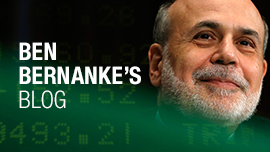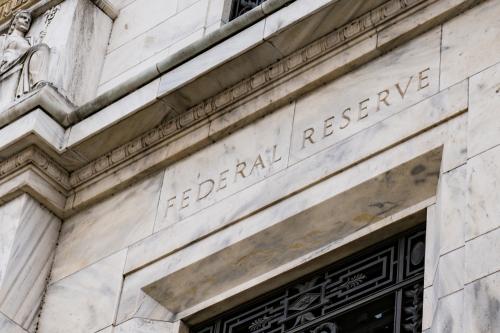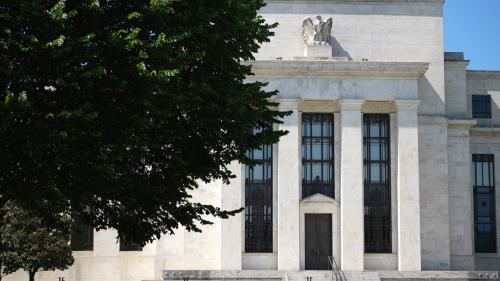On Tuesday the Senate will vote on whether to invoke cloture (that is, allow to proceed to the floor) on S. 2232, the “Federal Reserve Transparency Act of 2015,” otherwise known as “Audit the Fed.” Unfortunately, this approach raises serious concerns about Fed independence and the integrity of the process for making monetary policy.
You might think that legislation widely known as “Audit the Fed” would have something to do with auditing the Fed, in the conventional sense of reviewing the institution’s financial assets and liabilities, records, and operations. You’d be wrong. The Fed is already thoroughly audited in the usual sense, by an independent inspector general and by an outside accounting firm (currently, Deloitte and Touche), and the resulting financial reports are made public online. Every security owned by the Fed, up to the detail of the identifying CUSIP number, is also available online. Moreover, the Government Accountability Office (GAO), which does in-depth reviews and analyses (“audits” of a different type) of government activities at the request of Congress, has wide latitude to review Fed operations, including supervision and regulation as well as other functions. For example, as required by the Dodd-Frank Act of 2010, the GAO conducted reviews of the Fed’s emergency lending programs during the crisis and of the Fed’s governance structure. Since the financial crisis, the GAO has done some 70 reviews of aspects of Fed operations.
So what does Audit the Fed actually do? The principal effect of the bill would be to make meeting-by-meeting monetary policy decisions subject to Congressional review and, potentially, Congressional pressure. The bill would do this by repealing existing restrictions, imposed by Congress nearly forty years ago, on what the GAO can examine when reviewing the Fed. The most important such restriction blocks the GAO from reviewing “deliberations, decisions, or actions on monetary policy matters,” as well as “discussion or communication among or between members of the Board and officers and employees” related to such deliberations. The repeal of the existing restrictions would accordingly allow the GAO to view all materials and transcripts related to a meeting of the Fed’s Federal Open Market Committee (FOMC) at essentially any time and require the GAO, at Congressional request, to provide recommendations on monetary policy, including potentially on individual FOMC interest-rate decisions.
Effective Congressional oversight of the Fed is essential, of course, but it involves some complex tradeoffs. On the one hand, Congress has the ultimate responsibility of assuring itself and the public that monetary policy is being conducted reasonably and in the national interest. On the other hand, institutionally, Congress is not well-suited to make monetary policy decisions itself, because of the technical and time-sensitive nature of those decisions. Moreover, both historical experience and formal studies (for example, here, here, and here) have shown that monetary policy achieves better results when central bankers are allowed to focus on the longer-term interests of the economy, free of short-term political considerations.
Following international best practice, Congress has for many years effectively managed these tradeoffs by setting goals for monetary policy—specifically, that policy be set to foster “maximum employment” and “stable prices”—and holding the Fed accountable for reaching them. Consistent with the principle of accountability, the Fed is allowed to determine the settings of policy without political interference (this is what is meant by “central bank independence”). In turn, the Fed must regularly report and explain its decisions to Congress and the public, and in particular it must demonstrate that it is meeting its Congressional mandate. In practice, the Fed’s public communications about policy take many forms. For example, in speeches and other public appearances, Fed policymakers lay out in detail the considerations affecting current and future policy moves, including arguments on both sides of the issue. The Fed chair faces reporters in four press conferences each year and testifies before a variety of Congressional committees, including two rounds explicitly focused on monetary policy. Public Congressional testimonies are supplemented by dozens of meetings and calls each year between the chair and members of Congress, as well as frequent contacts between Fed and Congressional staff members. Detailed minutes of each FOMC meeting are released three weeks after the meeting is held, and verbatim transcripts after five years. (See here for the minutes from the December, 2015 meeting and here for the most recent released transcripts.) Fed policymakers also release each quarter their individual economic forecasts, including their forecasts of the future interest rate path needed to meet legislated objectives.
The Fed should continue to strive to improve its transparency and accountability, and in particular to ensure that Congress has all the information it needs to fulfill its oversight responsibilities. However, this goal is not best achieved by overturning longstanding practice and effectively inserting Congress and the GAO into monetary policy decisions, calling into question the Fed’s independence. The risk is that GAO reviews and recommendations concerning individual monetary policy decisions would provide a vehicle for members of Congress to apply political pressure on the Fed. There are certainly precedents for such pressure: The classic example occurred in the early 1980s, when then-Fed chair Paul Volcker’s ultimately successful efforts to conquer inflation faced Congressional uproar. An additional potential cost is that the candor of FOMC discussions and of the supporting materials prepared by the staff could be compromised, given that even short-term confidentiality could never be assured.
Of course, the Fed makes mistakes, sometimes big ones, as I am sure commenters will point out. Monetary policy is complex and must be conducted under tremendous uncertainty about both the economic outlook and how the economy works. Nevertheless, I know from first-hand experience that the FOMC sets monetary policy with the best technical information available and without any consideration of politics or partisanship. I am also confident that political interventions in monetary policy decisions would not lead to better results. But increasing the likelihood of such interventions is precisely the risk presented by “Audit the Fed.”
Comments are now closed for this post.
The Brookings Institution is committed to quality, independence, and impact.
We are supported by a diverse array of funders. In line with our values and policies, each Brookings publication represents the sole views of its author(s).




Commentary
“Audit the Fed” is not about auditing the Fed
January 11, 2016